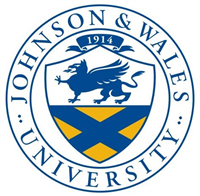What do they do?
Directly supervise and coordinate activities of workers engaged in preparing and serving food.
Also known as:
Cafeteria Manager, Dietary Manager, Dietary Supervisor, Food and Nutrition Services Supervisor, Food Production Supervisor, Food Service Director, Food Service Supervisor, Food Supervisor, Kitchen Manager, Kitchen Supervisor, Lunchroom Manager, Snack Bar Manager
-
0.3%
Change
Ranks #64 in job growth rate6,900Job Openings
Ranks #10 in net job growth
Colleges with the most graduates that become First-Line Supervisors of Food Preparation and Serving Workers
Looking for colleges that offer a specific major? Use the College Match Tool to find your best-matched schools and discover your estimated Net Price!
- High school diploma equivalent (37%)
- Some college, no degree (27%)
- Bachelor's degree (13%)
- Less than high school diploma (11%)
- Associate's degree (10%)
- Master's degree (2%)
- Doctorate or Professional Degree (<1%)
People in this career often have these skills:
- Speaking - Talking to others to convey information effectively.
- Monitoring - Monitoring/Assessing performance of yourself, other individuals, or organizations to make improvements or take corrective action.
- Coordination - Adjusting actions in relation to others' actions.
- Active Listening - Giving full attention to what other people are saying, taking time to understand the points being made, asking questions as appropriate, and not interrupting at inappropriate times.
- Service Orientation - Actively looking for ways to help people.
- Instructing - Teaching others how to do something.
- Management of Personnel Resources - Motivating, developing, and directing people as they work, identifying the best people for the job.
- Reading Comprehension - Understanding written sentences and paragraphs in work-related documents.
- Social Perceptiveness - Being aware of others' reactions and understanding why they react as they do.
People in this career often know a lot about:
- Customer and Personal Service - Knowledge of principles and processes for providing customer and personal services. This includes customer needs assessment, meeting quality standards for services, and evaluation of customer satisfaction.
- Food Production - Knowledge of techniques and equipment for planting, growing, and harvesting food products (both plant and animal) for consumption, including storage/handling techniques.
- Production and Processing - Knowledge of raw materials, production processes, quality control, costs, and other techniques for maximizing the effective manufacture and distribution of goods.
- Administration and Management - Knowledge of business and management principles involved in strategic planning, resource allocation, human resources modeling, leadership technique, production methods, and coordination of people and resources.
- Personnel and Human Resources - Knowledge of principles and procedures for personnel recruitment, selection, training, compensation and benefits, labor relations and negotiation, and personnel information systems.
- English Language - Knowledge of the structure and content of the English language including the meaning and spelling of words, rules of composition, and grammar.
- Education and Training - Knowledge of principles and methods for curriculum and training design, teaching and instruction for individuals and groups, and the measurement of training effects.
People in this career often have talent in:
- Oral Comprehension - The ability to listen to and understand information and ideas presented through spoken words and sentences.
- Oral Expression - The ability to communicate information and ideas in speaking so others will understand.
- Problem Sensitivity - The ability to tell when something is wrong or is likely to go wrong. It does not involve solving the problem, only recognizing that there is a problem.
- Deductive Reasoning - The ability to apply general rules to specific problems to produce answers that make sense.
- Speech Recognition - The ability to identify and understand the speech of another person.
- Speech Clarity - The ability to speak clearly so others can understand you.
- Written Comprehension - The ability to read and understand information and ideas presented in writing.
People in this career often do these activities:
- Manage food service operations or parts of operations.
- Communicate with customers to resolve complaints or ensure satisfaction.
- Balance receipts.
- Process customer bills or payments.
- Inspect facilities, equipment or supplies to ensure conformance to standards.
- Cut cooked or raw foods.
- Prepare foods for cooking or serving.
- Train food preparation or food service personnel.
- Clean food preparation areas, facilities, or equipment.
- Present food or beverage information or menus to customers.
- Assist customers with seating arrangements.
- Perform human resources activities.
- Maintain food, beverage, or equipment inventories.
- Coordinate activities of food service staff.
- Coordinate timing of food production activities.
- Record operational or production data.
- Monitor food services operations to ensure procedures are followed.
- Order materials, supplies, or equipment.
- Estimate supplies, ingredients, or staff requirements for food preparation activities.
- Schedule equipment maintenance.
- Plan menu options.
- Evaluate quality of materials or products.
- Schedule dining reservations.
This page includes data from:

 Occupation statistics: USDOL U.S. Bureau of Labor Statistics Occupational Employment Statistics
Occupation statistics: USDOL U.S. Bureau of Labor Statistics Occupational Employment Statistics
 Videos: CareerOneStop, USDOL/ETA and the Minnesota Department of Employment & Economic Development
Videos: CareerOneStop, USDOL/ETA and the Minnesota Department of Employment & Economic Development





